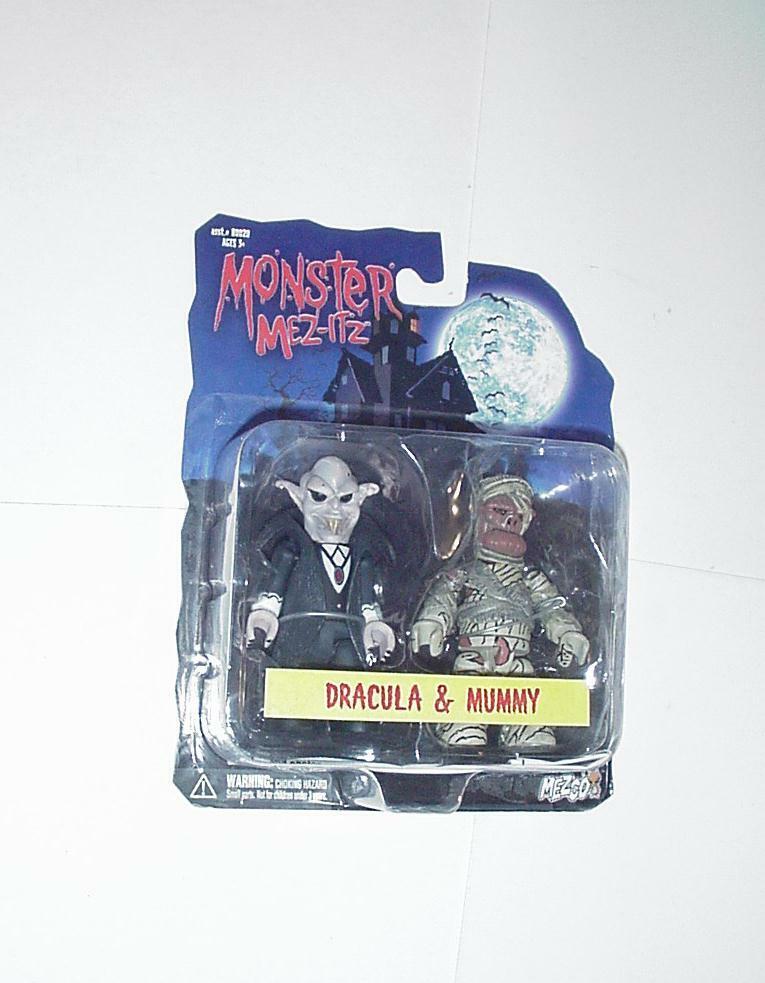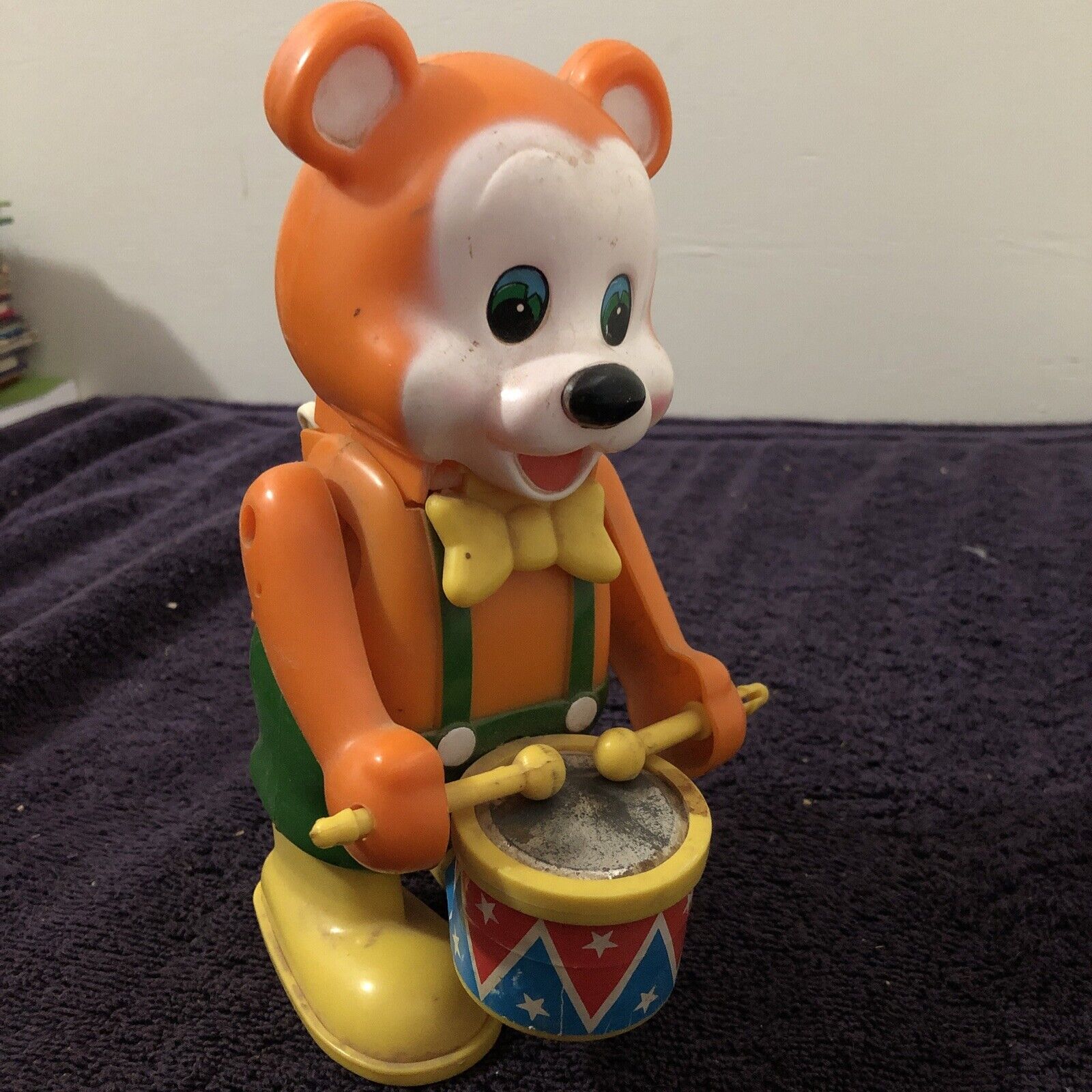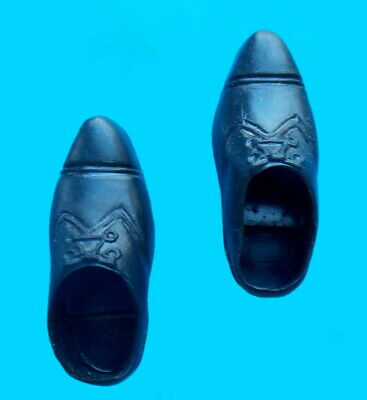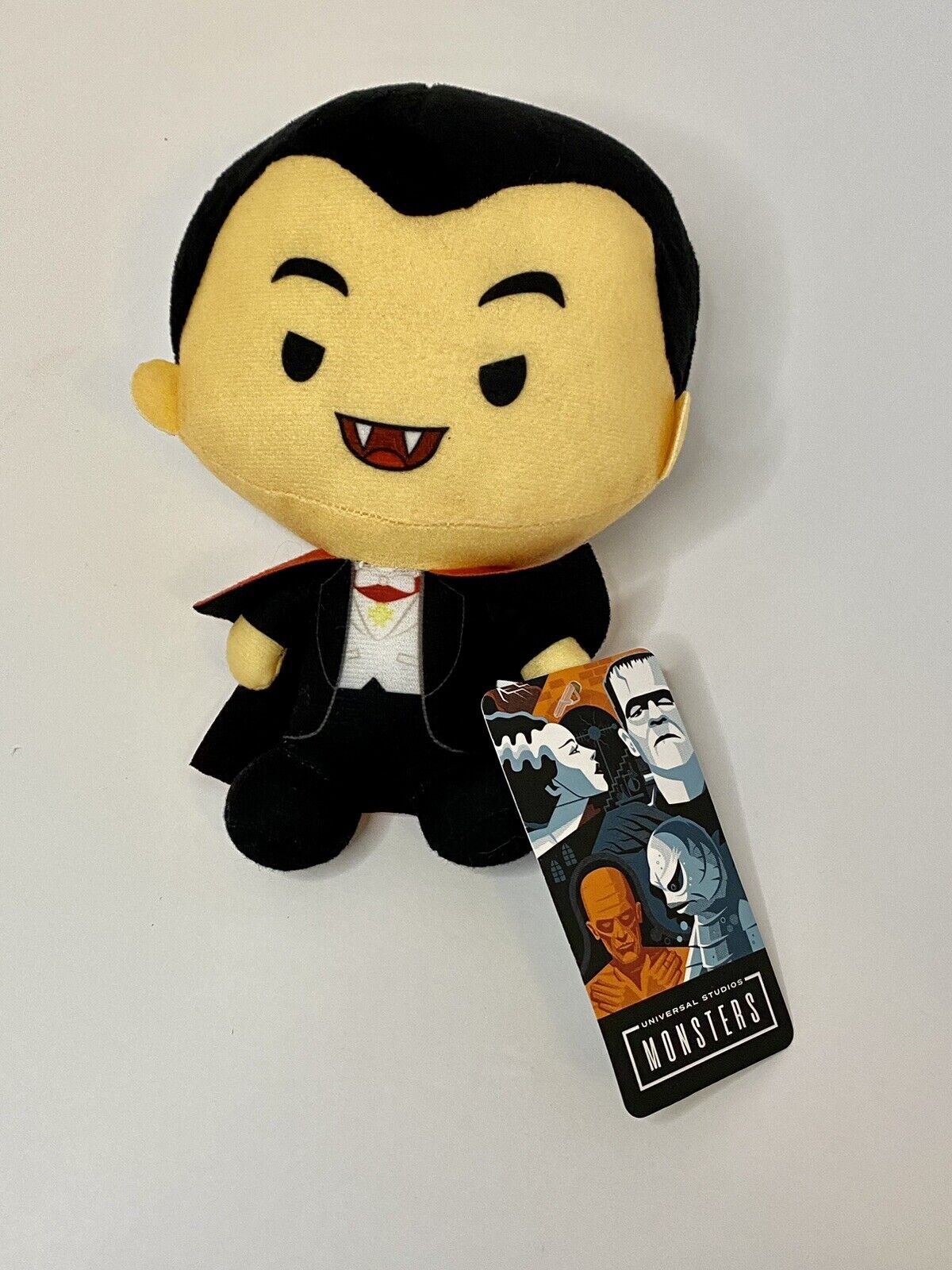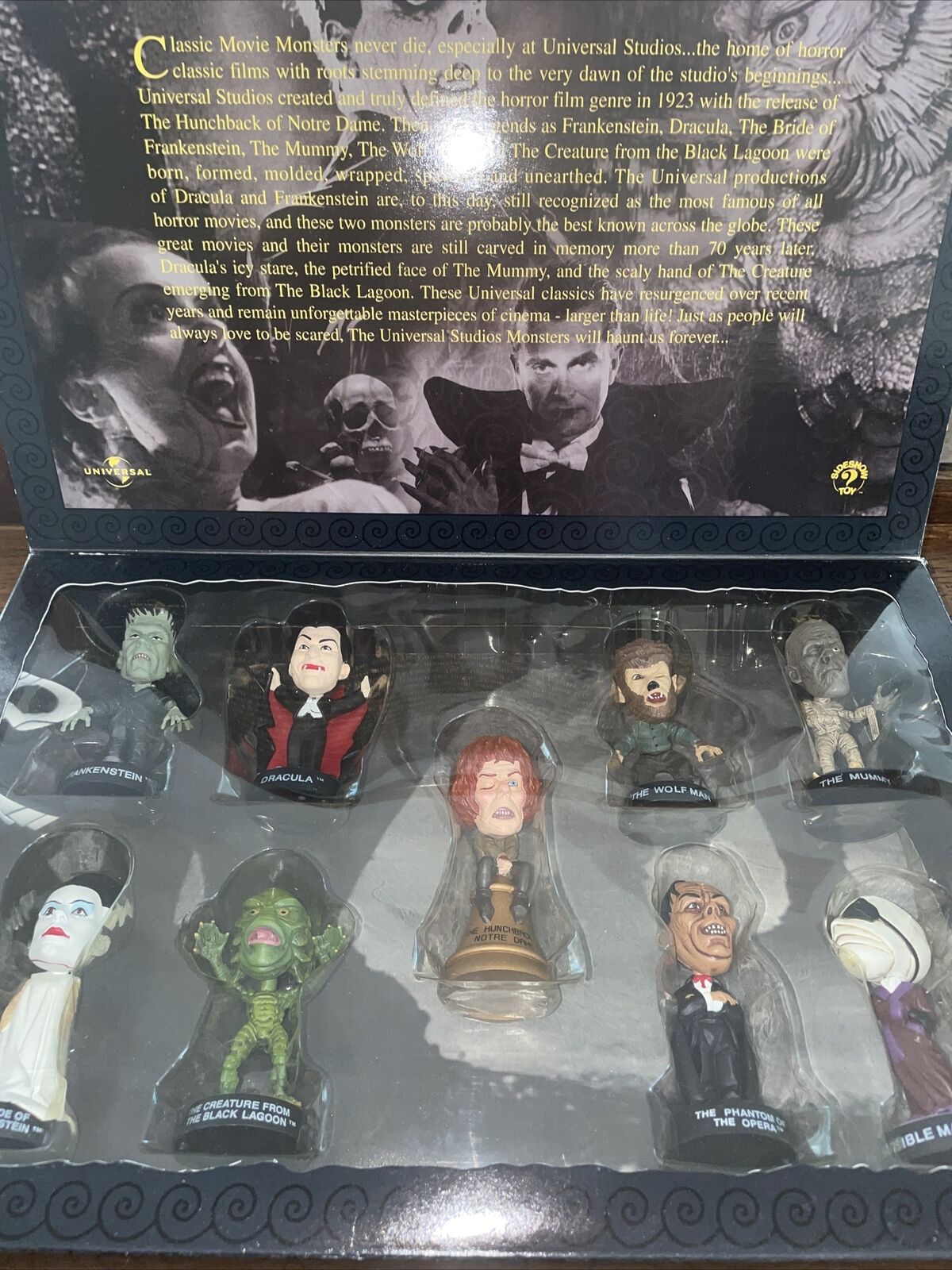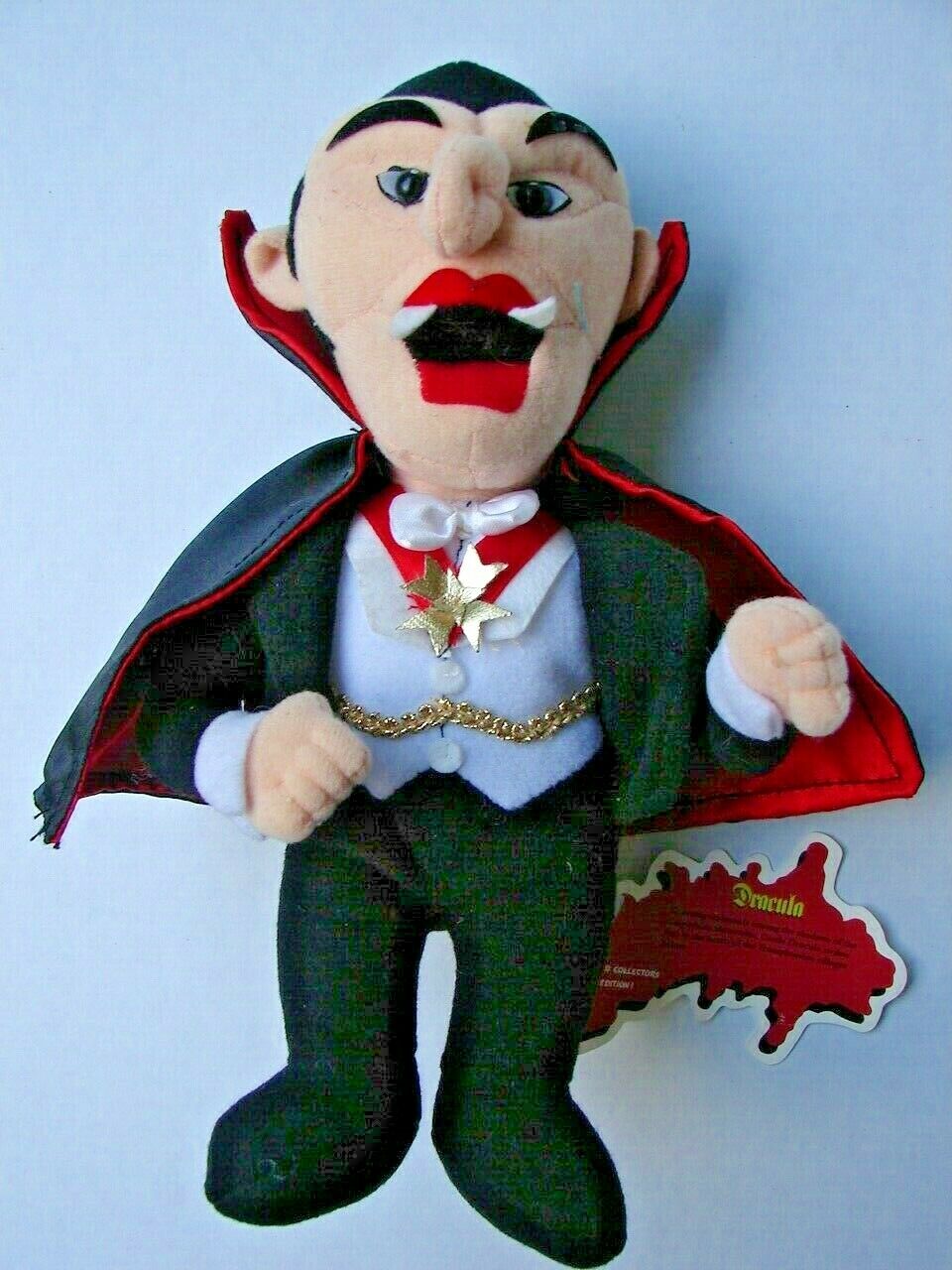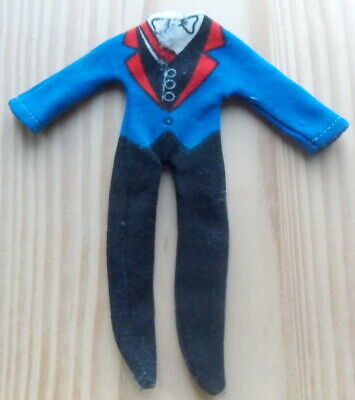-40%
Mezco Monster Mez-Itz: Dracula & Mummy 2-Pack NEW IN PACKAGE
$ 13.19
- Description
- Size Guide
Description
Mezco Monster Mez-Itz: Dracula & Mummy 2-Pack NEW IN PACKAGEThese small, articulated monsters duos are friendly creatures with scary detail and haunting accessories. Delightful little monsters for collecting and for play!
If you're a fan of monster collectibles than you're more than likely also a fan of Mezco toyz. One line of their's that met with an untimely demise was the Monster Mez-itz series. Spanning just two waves, the line wasn't successful enough to continue which is a real pity.
Mezco Toyz has always had a zany and exaggerated style which typically works well for these kind of releases. Who can say no to jacked up monsterized versions of Lego mini figures? Not me, that's for sure. I'm not positive if that was Mezco's original intent, but these certainly remind me of the little lego figurines I had when I was a child albeit more detailed and a lot cooler.
Frankenstein's Monster and the Wolfman (series one) are both timeless staples of the horror genre. Mezco has lovingly gave an original take on each, providing fans with 3 inch articulated creatures that can best be described as blown-up Lego figurines that have gone terribly, terribly wrong.
Also accompanying Frankenstein and the Wolfman are Dracula and the Mummy.
The actual figures are great, something (in my mind) no monster collector should be without. The sculpts are wacky and often times cartoonish, but also feature a lot of great detail.
The 3 inch figures are each loaded with detail while still managing to have a simplistic look due to the sharing of a basic mold. While each figure's body is the same things are kept interesting with the addition of items such as bandages, overcoats, and other small accessories.
The first series is made up of the real archetypal monsters. While everyone is very familiar with the likes of Dracula and The Mummy, this is Mezco's take on them and the company did a grand job breathing new life into the classic characters. Dracula's head sculpt is very rat like, reminiscent of Murnau's Nosferatu. The Mummy's sculpt sort of reminds me of one of those shrunken-head apples that Vincent Price was pawning off on kids back in the 70's. I dig it.
Do you think Universal Studios had any idea what kind of an impact they'd have on the world of horror when they released their cinematic version of Dracula in 1932? Followed the next year by Frankenstein, then in quick succession by the Wolf Man, the Mummy and the Creature from the Black Lagoon, the Universal Monsters became an iconic set of ghoulies, imprinted not just on the minds of their audiences, but on the minds of culture as a whole. Think of Frankenstein, and you see green skin, a square head and bolts in the neck. Dracula is a slightly round man with slick black hair. Werewolves change during a full moon and are vulnerable to silver. So many of the things we identify with these creatures comes not from their authors, but from the filmmakers who brought them to the masses. The Universal Monsters are the most well-known group of killers, referenced by everything from modern movies to children's cereal. Now Mezco Toys have brought their own interpretation to four of the characters.
Now, to be honest, there's no mention of the Universal Monsters anywhere on the packaging, and the figures don't overtly resemble that crew, but the choice of creatures is very telling. Sold in two-packs (Wolf Man with Frankenstein, Dracula with the Mummy), the Mez-Itz Monsters are fun pocket-sized representations of those old beasties.
The werewolf legend got its start in the German countryside around the town of Bedburg near the end of the 16th century. A man named Peter Stubbe terrorized the village for 25 years, eventually convicted of 15 murders in the guise of a wolf. On October 28, 1589, Stubbe was sentenced to a rather grisly death, which took place three days later. No wonder werewolves are so popular for Halloween. Stubbe's story was reported in England on June 11, 1590, and the legend of a man who could change into a wolf soon spread. Where wolf? Over there wolf Of course, there have been "animal man" legends since the dawn of civilization, and the word "werewulf" was first recorded in English in 1020, but Stubbe's tale is the beginning of the werewolves we think of now - he was the OJ of his day, just one of the 30,000 reports of loups-garoux between 1520 and 1630.
The MezWolf is obviously of the Universal variety, since he's wearing the tattered remains of his clothing - a white shirt and blue pants, torn to reveal the brown fur beneath. The 'fur' is detailed with lines of darker brown paint, like a child's drawing would be, and he's got a big tuft painted on his chest. There are a few bloodstains on his shirt, and three toenails on each foot. The wolfman's head has a cartoony sculpt, like all of the Mez-Itz, but it works for him. Mezco's given us the big wicked smile, the pointy ears and blood-red eyes. This is one (not-so-big) bad wolf.
Frankenstein's origins are less nebulous than his lupine companion's. In the summer of 1816, four friends were vacationing in Switzerland: Lord Byron, his physician, Dr. John Polidori, Percy Bysshe Shelley and his young mistress, Mary Wollstonecraft Godwin. Almost perpetual rain confined them principally to the house, where they passed the time by retelling ghost stories. A vivid nightmare inspired Mary to write her novel in two short months, and it was published on January 1, 1818 - eight months before she turned 21. Five years later, Frankenstein and his nameless monster made their foray into the world of drama in a play written by Charles Brinsley Peake. John Tesh prepares for another concert It was the first time that Frankenstein was turned into a poor adaptation, but it certainly wouldn't be the last. The novel is a masterfully constructed work, turned forever into melodramatic misinterpretations.
Most folks will tell you that Frankenstein wasn't the monster, that he was the doctor who created it. Most folks would be wrong. Victor Frankenstein was actually a student, not a doctor. For brevity's sake, however, we'll be referring to the monster by his creator's name.
Mezco's Frankenstein draws heavily on the Universal tradition: green skin; lumpy, malformed head; stitches and scars; and, perhaps most telling of all, big platform boots that make him taller than all his friends. He's wearing a brown fur vest - a real one, not just painted on - that makes him look more like the monster from Son of Frankenstein. The sculpted head has a big thick jaw and tremendous underbite. His eyes are uneven and point in different directions. Big metal staples hold his face together, and his black hair falls down around the hexagonal bolts sticking out of his temples.
Almost every culture through history has had some sort of undead bloodsucker, from the Babylonian Ekimu to the Chinese Kuang-Shi to Motetz Dam of the Hebrews, the Mormo of ancient Greece and Rome to the more familiar Nosferatu of Transylvania. Our modern idea of the vampire is shaped mainly by Bram Stoker; an immortal, fanged creature of the night that subsists solely on blood and can be destroyed by a stake through the heart. The traits of vampires varied greatly by culture, though: some lived eternally, some for little more than a month; sunlight will destroy some vampires, while others can move about freely during the day; MORMO DEMANDS ANSWERS! some, like the Bulgarian Ubour, don't even drink blood. Most legends don't even mention fangs, and the stakes were just to pin them to the earth so they couldn't get up and walk around, not kill them. For a repressed Irish homosexual writing about German legends, Stoker has a surprisingly potent influence.
Mezco's Dracula actually departs the farthest from the Universal version, drawing instead from F.W. Murnau's Nosferatu. We get the pale, angular head, the pointed ears and the paired fangs in the front of the mouth. From the front, Drac looks more like a chubby, buck-toothed kid than the prince of darkness. The sculpt captures the vampire warts and all, while the paint job - a light blue-gray over pink - does a great job of simulating veins beneath pale skin. Dracula is wearing an elegant suit and a high-collared black jacket that contrasts with his pallid flesh.
On the Frightometer, mummies rate pretty low. They're dried, desiccated and tied up. They shamble around slowly, barely able to move. How scary is a monster you can escape by going up a flight of stairs? Mummification was a highly ritualized process, reserved for only the most important figures. In the per nafer, the place of embalming, was what was known as the divine booth. The head of a new corpse would be covered with molten resin to preserve the features, and then the stomach and intestines had to be drawn out through the abdomen. Ladies and gentlemen, George Hamilton! The task of slitting open the belly with an obsidian knife fell to a funeral operative known as the Ripper Up. This was a pretty lowly position, because anyone who wounds a corpse is worthy of hatred - his task done, the Ripper Up was cursed and attacked by the officiating priests, driven from the booth and the per nafer.
It's back to Universal designs for the Mummy - the Mez-It has the same red wrinkled skin as Boris Karloff's undead Egyptian. Most of his bandages are painted onto his body, but a few are sculpted elements glued into place. Mummy's right arm pops off easily, because the placement of the bandage on his shoulder pushes it away from the body, but it reattaches easily. Besides, it's fun to have a pull-apart Mummy.
The 3" Mez-It body, slightly egg-shaped and not as stark as AA's Minimates, moves at the hips, waist, shoulders, wrists and neck. The lifts on Frankenstein's shoes give him 3/8" on the rest of this monstrous crew, which isn't enough to make him look out of place.
The Universal monsters have proved to have tremendous staying power of the years. They've appeared on US Postage stamps, cartoons, and were the inspiration for two of McFarlane Toys' Monsters series. Lon Cheney Jr., Boris Karloff and Bela Lugosi are familiar to audiences today, decades after their deaths. The monsters may have been killed, but the Monsters are immortal.
Please feel free to view our other listings by clicking
HERE
, you may not be interested in this particular item but perhaps you'll find something...unexpected!
Description:
Please note- overseas buyers, no tracking, no shipping...which means priority express international...expensive but at least we both know your order was delivered!
All sales will be shipped securely within ONE business day!
If you have any questions at all, don't hesitate! All orders shipped within 1 business day!
PLEASE TAKE A MOMENT AND CHECK MY OTHER LISTINGS!
If you don't see it- ask! It MAY be in stock! We'll be glad to put a listing up for you!
Respond to messages in 24 hours or less!
